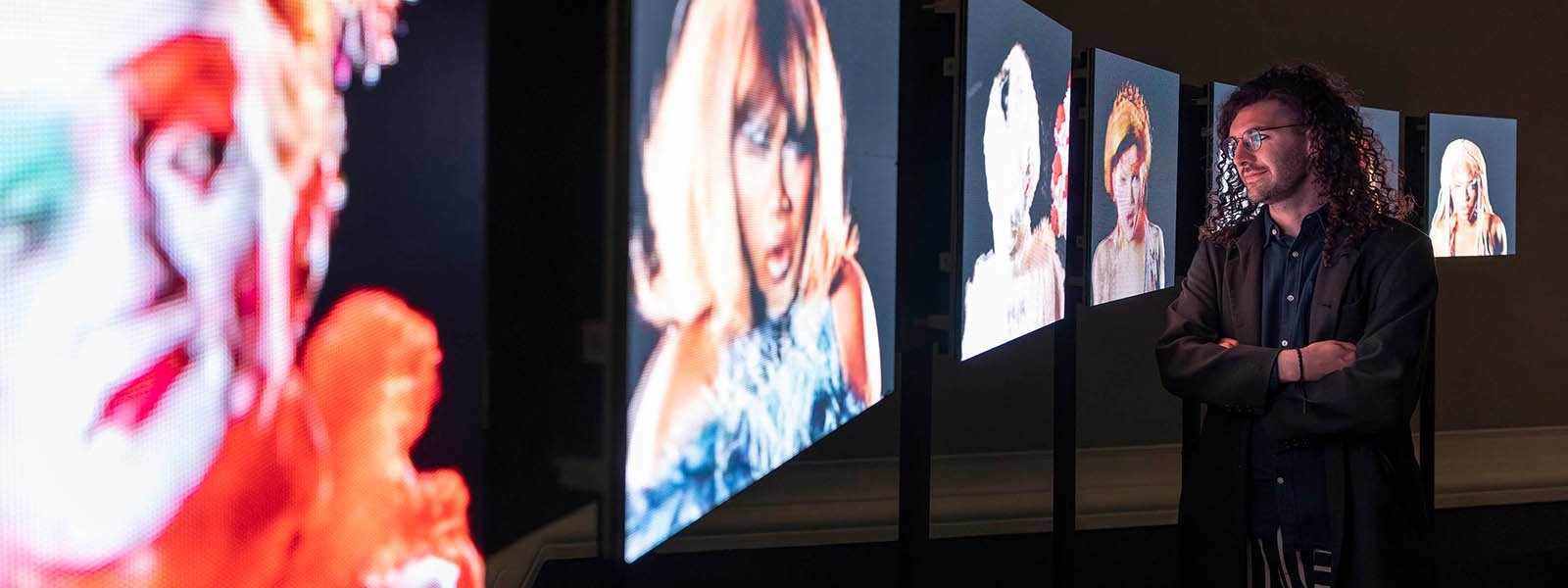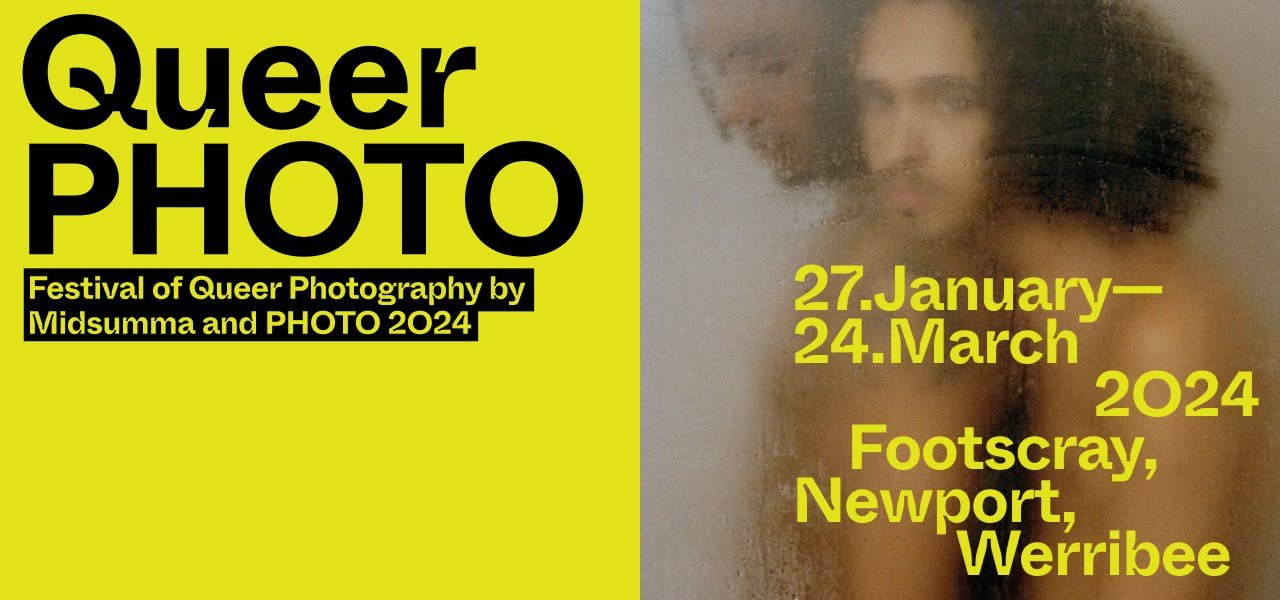How artist Jake Elwes is Queering the Dataset
〰️ Melbourne / Australia
〰️ Melbourne / Australia
Jake Elwes
TL;DR: Ever wondered what happens when drag queens and kings meet artificial intelligence?
So what? Artist Jake Elwes wants to show you through their work at Midsumma Festival’s QueerPHOTO exhibition.
Giant drag queens rest on the banks of the Maribyrnong River. In the heat, their makeup almost melts off the canvases their digitally rendered images are on. It’s summer in Melbourne and inside Footscray Community Arts their creator, British artist Jake Elwes, weaves through the exhibition spaces of QueerPhoto—Midsumma and PHOTO 2024 festival of queer photography—moving just like the river out the front.
Photoshop tennis
Elwes grew up in a creative family—a childhood that was equal parts artistic and digital. Their great grandfather Simon painted English nobility and American presidents, their father Luke became a landscape painter, while their cousin Carey might be most recognisable for his roles in Robin Hood Men in Tights, Saw or BlackBerry.
"I was a very hyper kid doing a lot of things... teaching myself Photoshop at six or seven,” says Elwes, “everyone else was playing games, but I wanted to learn how to make them."
The first game they invented? “Photoshop Tennis.”
Starting out Elwes would augment an image using the Adobe program—then send it on to a graphic designer friend. The designer would iterate on the image, and send it back to Elwes to continue the game. “Back and forth it went” says Elwes, "photoshop then morphed into 3D rendering programs...and then coding. So before long, I wanted to start to code my own tools.”
Studies in drag-cademia
Elwes studied at Slade School of Fine Art, and Central Saint Martins. In the mid 2010’s they began exploring the potential of computer code as a medium for artistic expression. It was during this formative period that Elwes, fascinated by the blend of technology and creativity, began to delve into digital art and conceptual work.
Parallel to their academic endeavors, Elwes's interest in drag culture was sparked by Dr. Joe Parslow, who introduced them to the vibrant world of drag performance. The encounter not only expanded Elwes's artistic horizons but also ingrained in them a profound appreciation for the expressive power of drag. It illuminated the nuanced layers of identity and performance—planting a seed which would become central to their work.
Elwes went on to meet influential figures like Memo Akten and Mario Klingemann, early pioneering artists working with AI, during their formative years working with the technology.
"It was really hard to work on [AI] back then. You had to be a hacker," Elwes notes, acknowledging the technical challenges and the inspirational community that shaped their early forays into AI art, and in understanding and manipulating AI technologies to explore identity and expression.
Clifford Prince King, Untitled, (m _ q), 2017. Credit: Gordon Robichaux, NY and STARS, LA and QueerPHOTO.
Queering the Dataset—the heart of Elwes's work
At the core of Elwes's exhibition for QueerPhoto is The Zizi Project, a compelling endeavor to challenge the normative biases of facial recognition technology.
"Knowing that facial recognition technology struggles to recognise black women or transgender people, I set out to Queer the Dataset," Elwes explains, highlighting the project's foundation in inclusivity and representation.
By disrupting AI models through re-training them with thousands of images of “drag and gender fluid faces found online,” the neural network begins to stray from the “normative identities it was originally trained on, and into a space of queerness.”
The future of AI in art and culture
Ultimately, "the Zizi Project explores what AI can teach us about drag, and what drag can teach us about AI," says Elwes.
"I think we need to learn to work with people...not just be single individual artists," they muse, advocating for collaboration and inclusivity in the creation of art and technology on all levels. "It's just actually so much better, and so much nicer not to be making art—or building technology—alone."
Elwes invites us into a world where technology is both a tool to create and a medium to explore the depths of human creativity and diversity, while offering a commentary on the need for greater diversity and representation within AI itself.
As visitors to QueerPhoto experience Elwes' work, they are witnessing the intersection of AI and drag culture invited to consider the broader implications of their art for understanding the role of technology in shaping our perceptions of identity and the world around us.
QueerPhoto is presented by Midsumma and PHOTO 2024 International Festival of Photography, in association with Trocadero Projects.
Running from 27 January – 24 March 2024, it featured 17 artists, 14 exhibitions, 30 free interactive events and 7 locations, transforming Melbourne’s West into a gallery of visual artworks from LGBTQIA+ artists.




